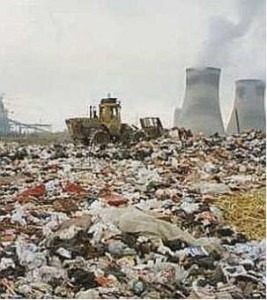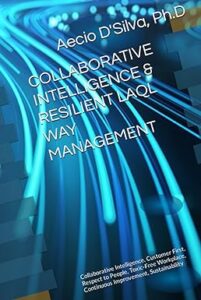Municipal Waste – By: Dr. Aecio D’Silva, CEO, Moura Technologies and Dr. John Kyndt (Head Scientist of the Renewable Energy Program at MT – Advanced Energy Creations Lab).

In past posts we have talked about algae for biofuels extensively. In this article we will show the importance of a technology that processes municipal waste or municipal solid waste or city waste as a source of feedstock for the production of biofuels and green chemicals.
With urban expansion, the volume of municipal waste is growing exponentially each year. It is time for us to rethink our strategy of dealing with this growth and invest in systems that provide a sustainable solution.
These systems represent the most environmentally friendly way of dealing with this great challenge of our well-known municipal waste – our everyday garbage.
Consequently, the technology of production and purification of synthesis gas (syngas) has received great attention from our group and other researchers and industries in recent years.
When produced in a conscious and clean process, syngas can provide a sustainable source of energy. It can be converted either chemically or biologically into liquid fuels.
The development of this technology represents a major effort toward a more efficient, sustainable and environmentally friendly management of waste and garbage of all kinds.
The worldwide decline of fossil fuel sources – oil, natural gas, coal – and the need for clean energy and alternative motives become major drivers worldwide for sustainable energy development.
Municipal Waste – Source of Renewable Fuels
The power supply in the world today still depends heavily on fossil fuel combustion for stationary systems, household, and transportation vehicles.
Alternative and renewable fuels are needed to fill the gap, resulting from the declining supply of fossil fuels, which will continue to grow.
In essence, we have been recycling waste for many years either by dumping it in landfills and waiting for nature to break it down into useful nutrients or by actively recycling (e.g. plastics and paper) in more recent years.
As our society expands exponentially it is time to improve this process and recycle the waste into useful products, like energy and fuel, which are necessary to sustain this exponential growth.
In this sense, the transformation of various forms of urban waste and municipal waste into clean renewable fuels is one of the options available to face the great health and ecological challenges that society faces.
Related links:
- Municipal Waste: Producing Everything That is Currently Produced by Oil
- Flue Gas for Algae Cultivation: Curse or Blessing?
- Algae For Waste Water Treatment And BioFuel Production: A Double Winner
- Need For New Chemical Catalysts for the Conversion Of Syngas To Green Fuels
- Developing GE Thermophilic Bacteria for Syngas to Fuel Conversion
- Algae after Lipids: Plasma Arc Based Gasification to Green Fuels
- Energia Renovável: Gaseificação dos Resíduos Domésticos



The ansewr of an expert. Good to hear from you.